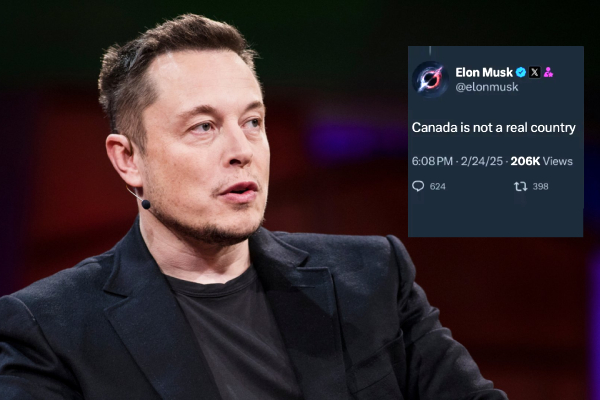WASHINGTON – The Republican and Democratic leaders of the US House of Representatives’ select committee on China warned on Feb 25 that Beijing may try to exert leverage with billionaire Elon Musk in a bid to win favourable US policies, and that Washington must counter any such effort.
Republican committee chair John Moolenaar and Democratic ranking member Raja Krishnamoorthi said they believed the Communist Party of China wants to use US business leaders, including Mr Musk, who have commercial interests in China to advance its goals in talks with Washington.
“To the question of Elon Musk, I do believe that the CCP (Chinese Communist Party) will try and leverage any opportunity,” Mr Moolen
“Are people going to be looking for that and make sure that his lane is one that is not influencing China policy? I believe that is the case,” Mr Moolenaar said, when asked if Congress has a role in preventing Beijing from negotiating with the White House through Mr Musk.
Mr Musk and the White House did not respond immediately to requests for comment.
China’s Washington embassy said China welcomed “mutually beneficial cooperation” with “people from all walks of life in the United States”.
“We are happy to see foreign-funded enterprises invest and start businesses in China, deepen their presence in the Chinese market and share development opportunities,” embassy spokesman Liu Pengyu said by e-mail.
China has some pressing priorities. Just over a month into his second term, US President Donald Trump has announced additional 10 per cent tariffs on Chinese goods, called for greater restrictions on Chinese investment in the US, and named China hardliners to key posts.
Mr Musk, the world’s richest man and among Mr Trump’s biggest donors in the 2024 election, could be attractive to Beijing as a potential conduit to Mr Trump because he has become one of the President’s closest White House advisers.
Mr Trump named Mr Musk to lead a signature effort to radically downsize the federal government.
The billionaire has for years also had contact with senior Chinese officials, including President Xi Jinping.
China may also be able to grant Mr Musk things that he wants. His biggest business interest in China is electric car company Tesla, which he co-founded and leads as chief executive. Tesla delivered 36.7 per cent of its cars to customers in China in 2024, its second-largest market worldwide based on sales.
But Tesla’s market share has declined in China as domestic electric vehicle makers have grown, and it has faced regulatory roadblocks to the roll-out of its self-driving features there that could boost sales while regulators have allowed Chinese firms to move ahead.
Apart from Tesla, some of Mr Musk’s other ventures including commercial rocket and satellite firm SpaceX and social media platform X – the latter is banned in China – are viewed by Beijing as security risks.
Mr Krishnamoorthi told the Brookings event that Beijing viewed Mr Musk as way to circumvent China hawks on Mr Trump’s national security team, including Secretary of State Marco Rubio and national security adviser Mike Waltz.
“They absolutely see him as an asset to them in any kind of negotiations, a way to bypass Rubio, a way to bypass Waltz, a way to bypass those whom they see to be less friendly to them on their issues,” Mr Krishnamoorthi said.
“My hope is that the President is going to be listening to everybody very carefully.”
The lawmakers did not detail the evidence supporting their views.
The White House has said Mr Musk has no decision-making authority in the Trump administration and his efficiency initiative has no direct involvement in US foreign policy.
Mr Trump’s praise for Mr Xi and Russian President Vladimir Putin have stoked concerns that he might pursue a grand bargain with Beijing that sidelines Taiwan. China claims the island as its territory, and Taipei has historically counted on Washington as its most important backer, a major irritant to China.
Mr Krishnamoorthi said he was worried Mr Trump could put core US interests, such as support for Taiwan or freedom of navigation in the South China Sea, up for negotiation in any direct talks with Mr Xi to achieve wins on trade.
Mr Moolenaar said he had confidence in Mr Trump’s national security team, but also “limited hopes” for what talks with China might achieve, given Beijing’s failure to live up to past promises. REUTERS


